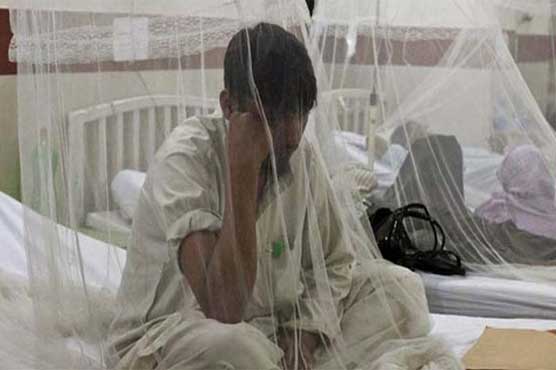Rawalpindi, Multan face dengue fever outbreak as more cases surface

People have been advised to use mosquito nets and insect repellents.
RAWALPINDI/MULTAN (Dunya News) – At least 90 more dengue-hit patients on Tuesday surfaced in the past 24 hours in Rawalpindi, taking the toll to 2150.
Due to the escalating number of patients, beds in hospital wards have fallen short. Patients admitted in the metropolis hospitals include a large number of children and women.
An alarming situation has also been seen as doctors and paramedics have devoted their complete attention and care towards the dengue sufferers, neglecting other patients.
Also Read: Another 2000 dengue cases reported in Rawalpindi
Meanwhile, Chief Secretary Punjab Khizar Hayat Gondal ordered twice spray in various parts of the city to halt further growth of dengue mosquitoes. He said that a complete precautionary strategy would be adopted in this regard.
Incumbent Health Ministry revealed that uncontrolled dengue virus has targeted dozens of people so far whereas more cases are also likely to be surfaced.
The local government has strictly directed people to take precautionary measures to restrict further number of patients. Anti-dengue campaign was also launched in Punjab but no significant results were taken.
However, six people have fallen prey to the virus.
Dengue virus in Multan has also intensified as at least 273 patients were admitted in various government hospitals among which 183 have been tested positive to the disease.
Also Read: Dengue virus intensifies in Multan as 128 test positive
Sources told that more than 200 dengue victims have been reported this week in both government and private hospitals whereas the patients’ toll affected by the deadly virus has reached to 2400 in the ongoing year.
There is no treatment for dengue, which causes symptoms including fever, severe joint pain, headaches and bleeding.
About half of the world’s population is at risk from the mosquito-borne disease which sickens about 100 million people every year, mostly in Asia, Africa and Latin America.
People have been advised to use mosquito nets and insect repellents and to avoid storing water in open pots where the larvae can breed.

